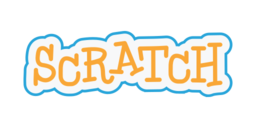
Description

Teaching with Scratch for Your Content Area
Help students create meaningful projects in your content area using MIT’s Scratch. Scratch is a free online community and program that encourages students to code, draw, and create. Through this workshop you can learn Scratch or expand on knowledge you have. You will design your own Scratch projects, share ideas with classmates, and create a Scratch based lesson plan for your content area. You can get an overview of Scratch by visiting their website at scratch.mit.edu.
Registration Deadline: July 4, 2022
Course Details
| Audience | Educators looking to integrate Scratch |
| Level | All Levels |
| Instructor | Barbara Peskin |
| Dates |
Monday, July 11, 2022 through Monday, August 1, 2022 |
| Time |
Asynchronous, Self-Paced |
| Prerequisites |
Beginner to Advanced: You can have no familiarity or lots. |
| Earn | 12 PDPs |
| Location | Online |
| MassCUE Member Cost | $150 |
| MassCUE Non-Member Cost | $190 |
| Limit | 25 Participants |
| 1 Graduate Credit (Optional) |
At the first class, participants may choose to register for 1 graduate credit through Worcester State University for an additional fee of $125. |
Instructor
Barbara Peskin
Barbara Peskin has been helping students and teachers integrate technology for over 20 years. She has led many online and face to face staff development workshops. Currently she is teaching Digital Literacy and Scratch Enrichment at Concord Middle School and designed a curriculum for students that lets them both learn Scratch anew and/or challenge those with already strong skills. She has worked closely with the Harvard Ed Scratch team through local Meetups. She is excited to help classroom teachers integrate Scratch in their curriculum because she has seen how rewarding creating with Scratch has been for students.
Course Outline
Week 1 – 3 hours:
- Learn: Intro to Scratch. Create a Scratch account and join our studio.
- Create: Build a Race.
- Explore: CS First’s An Unusual Discovery.
- Share: Feedback on building the project and projects you found related to your content area.
Week 2 – 3 hours:
- Learn: More Scratch Features. Look for Scratch projects related to your content area.
- Create: Design a ScratchPop (BrainPop style Scratch Animation) or game related to your content and share in our studio.
- Explore: Look at classmate’s races in our studio. Comment on several using reflection question #2.
- Share: What ideas do you have for the Week 4 lesson plan. How might you use or assign Scratch to students in your content area.
Week 3 – 3 hours:
- Learn:
- Scratch and State Frameworks for DLCS
- ScratchEd’s Curriculum Guide https://scratched.gse.harvard.edu/resources/creative-computing-curriculum-guidefor-scratch-30.html
- Create: Start a model Scratch project related to your content area and/or exemplifies a Scratch project you will assign students in your Week 4 lesson plan.
- Explore and Share: Explore classmates ScratchPops in our studio and comment on reflection question #3.
Week 4 – 3 hours:
- Create: A Lesson Plan for students.
- Create: Include a model Scratch project for the lesson along with any instructions needed for students. This could be based on the Race or ScratchPop you created in Weeks 1-3 or be entirely new.
- Share: Explore classmate projects in studio and comment on reflection question #4.
- Do: Complete your reflection
Optional Graduate Credit Assignment:
Submit lesson plan and sample projects one week after last class day. Grading Criteria Rubric.
DESE Standards
This course supports the following standards:
MA: Digital Literacy & Computer Science (2016)
6-8.CAS.a.4 Describe and use safe, appropriate, and responsible practices (netiquette) when participating in online communities (e.g., discussion groups, blogs, social networking sites).
6-8.CAS.b.3 Apply fair use for using copyrighted materials (e.g., images, music, video, text).
6-8.DTC.a.3 Integrate information from multiple file formats into a single artifact.
6-8.DTC.b.1 Communicate and publish key ideas and details individually or collaboratively in a way that informs, persuades, and/or entertains using a variety of digital tools and media-rich resources.
6-8.DTC.b.2 Collaborate synchronously and asynchronously through online digital tools.
6-8.DTC.b.3 Demonstrate ability to communicate appropriately through various online tools
6-8.CT.a.2 Define a simple function that represents a more complex task/problem and can be reused to solve similar tasks/problems.
6-8.CT.b.1 Design solutions that use repetition and conditionals.
6-8.CT.b.2 Use logical reasoning to predict outputs given varying inputs.
6-8.CT.b.3 Individually and collaboratively decompose a problem and create a sub-solution for each of its parts (e.g., video game, robot obstacle course, making dinner).
6-8.CT.b.4 Recognize that more than one algorithm can solve a given problem.
6-8.CT.b.5 Recognize that boundaries need to be taken into account for an algorithm to produce correct results.
6-8.CT.d.1 Individually and collaboratively compare algorithms to solve a problem, based on a given criteria (e.g., time, resource, accessibility).
6-8.CT.d.2 Use functions to hide the detail in a program.
6-8.CT.d.3 Create a program, individually and collaboratively, that implements an algorithm to achieve a given goal.
6-8.CT.d.4 Implement problem solutions using a programming language, including all of the following: looping behavior, conditional statements, expressions, variables, and functions.
6-8.CT.d.5 Trace programs step-by-step in order to predict their behavior.
6-8.CT.d.6 Use an iterative approach to development and debugging to understand the dimensions of a problem clearly.
Registration Information
Sign Up for “Teaching with Scratch for Your Content Area”
July 11 – August 1, 2022
MassCUE Member Cost: $150 Non-Member Cost: $190
Graduate Credit (Optional): 1 Graduate Credit through WSU
Registration Deadline: July 4, 2022
 Print this post
Print this post
